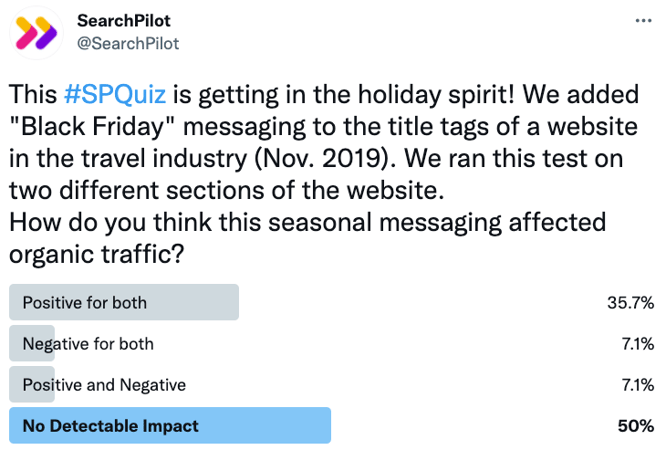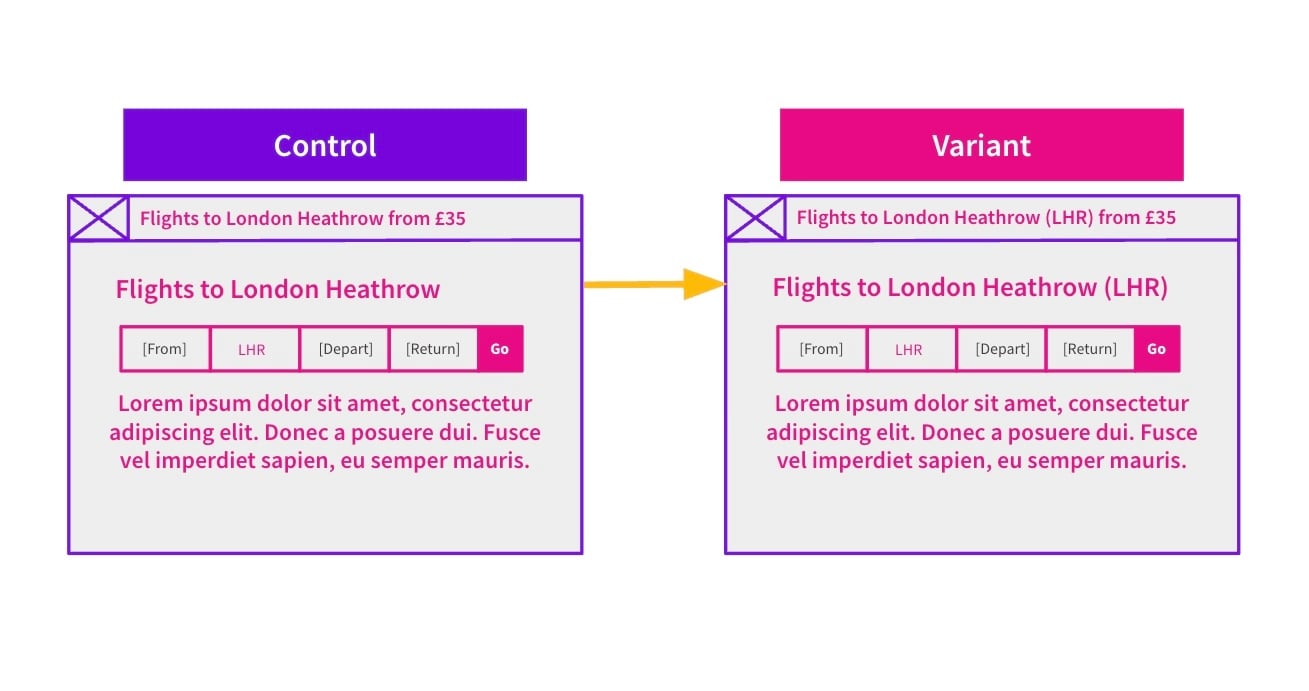Start here: how our SEO split tests work
If you aren't familiar with the fundamentals of how we run controlled SEO experiments that form the basis of all our case studies, then you might find it useful to start by reading the explanation at the end of this article before digesting the details of the case study below. If you'd like to get a new case study by email every two weeks, just enter your email address here.
For this week’s #SPQuiz, we asked our Twitter followers what they thought the impact on organic traffic was when we added “Black Friday” to the title tags of a travel website.
Here’s what people thought:
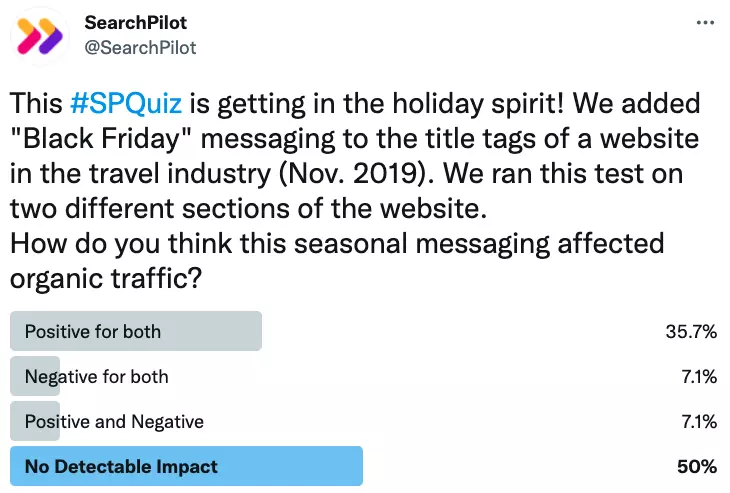
Half of our followers believe that adding “Black Friday” to the title tag had no detectable impact on organic traffic while the second-highest vote was for a positive result on both page templates.
In the end, the correct answer was that it was positive on one section and negative on the other!
Read the full case study below to find out why!
The Case Study
As the holiday season approaches, businesses are reintroducing holiday-specific keywords into their metadata. We previously wrote about how adding seasonal messaging to title tags and the meta descriptions around Easter hurt the organic performance of a travel site.
How might the impact differ when the seasonal messaging relates to a truly commercial holiday like Black Friday?
Our customer tested adding “Black Friday” to the titles on two different page templates; they hypothesized that this change may help increase their rankings for “Black Friday” related queries and allow their pages to stand out in the search engine results - possibly leading to improved click-through rates and increased organic traffic.
This change was tested on two templates (Destination and Routes pages) across several markets such as the US, UK, Spain, and Germany.
NOTE: these tests were run in November of 2019, pre-COVID-19 pandemic
The control and variant title change for Destination pages:
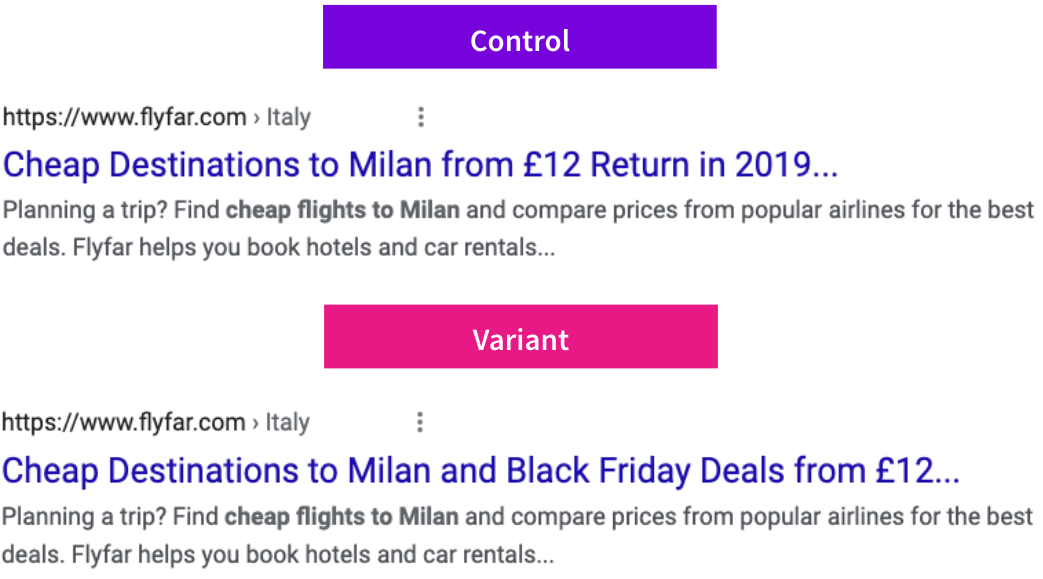
The control and variant title change for Routes pages:
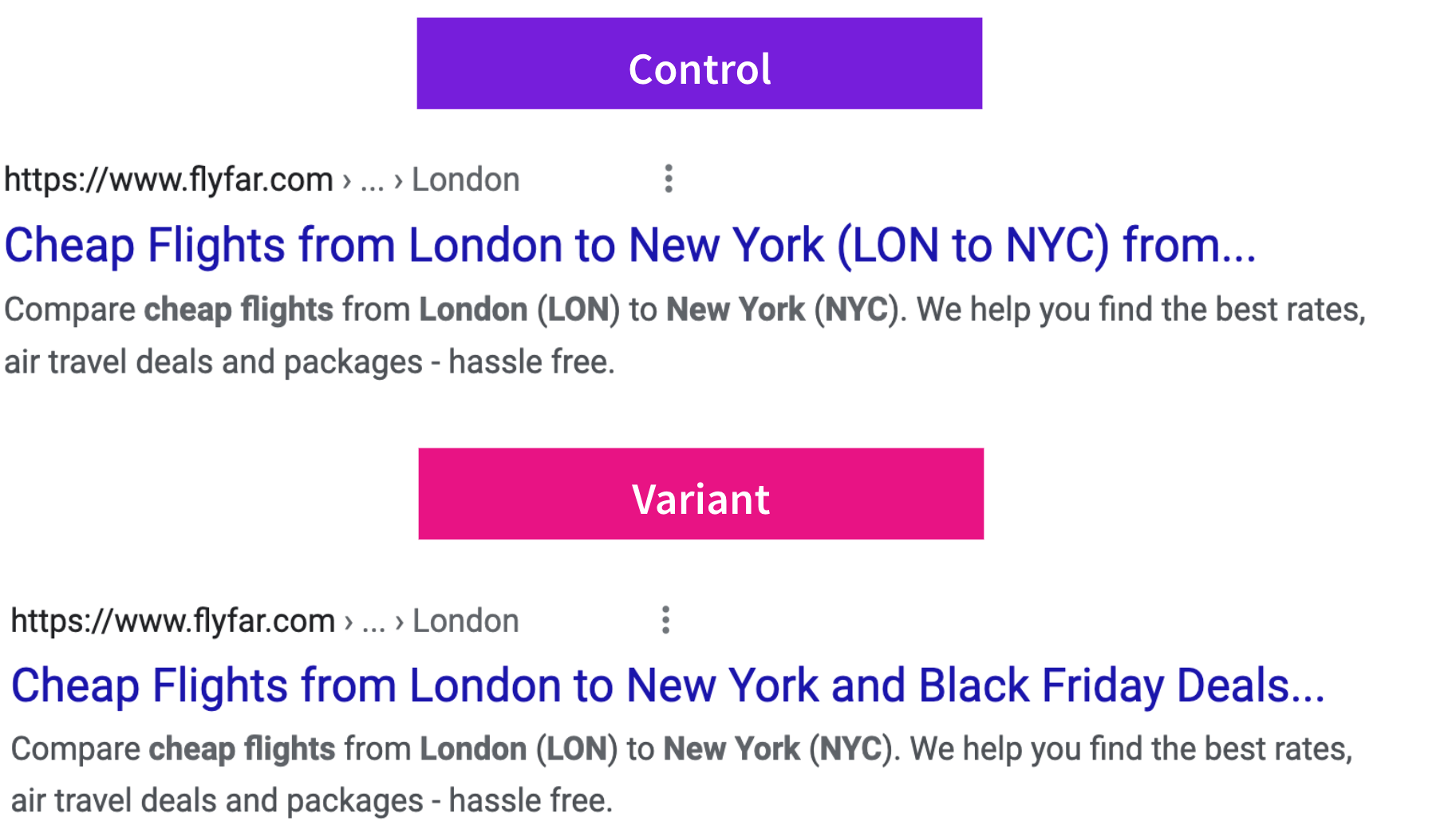
The charts below show the impact of this test on organic sessions for Destination pages:
US Market: +18% uplift
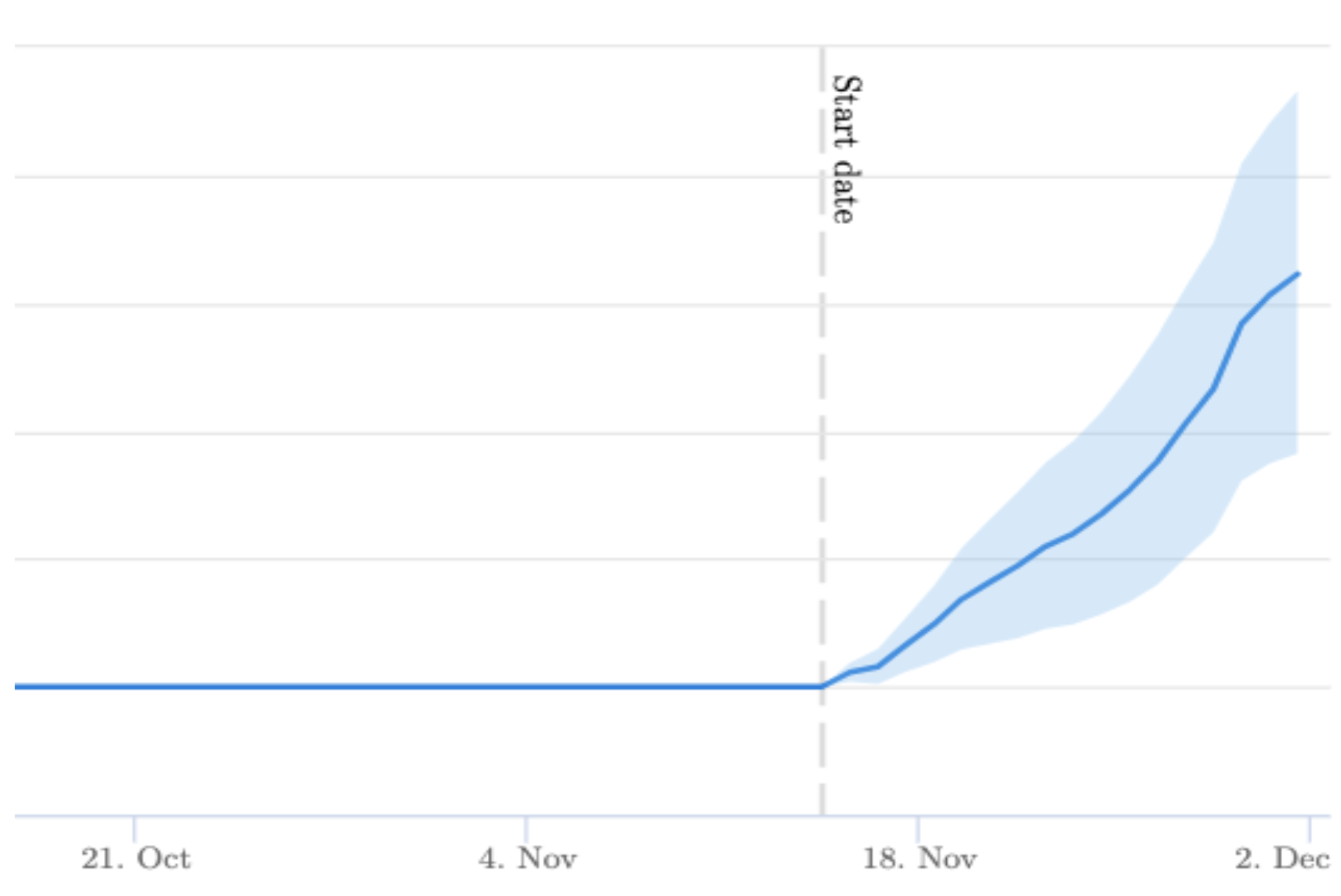
ES Market: +12% uplift
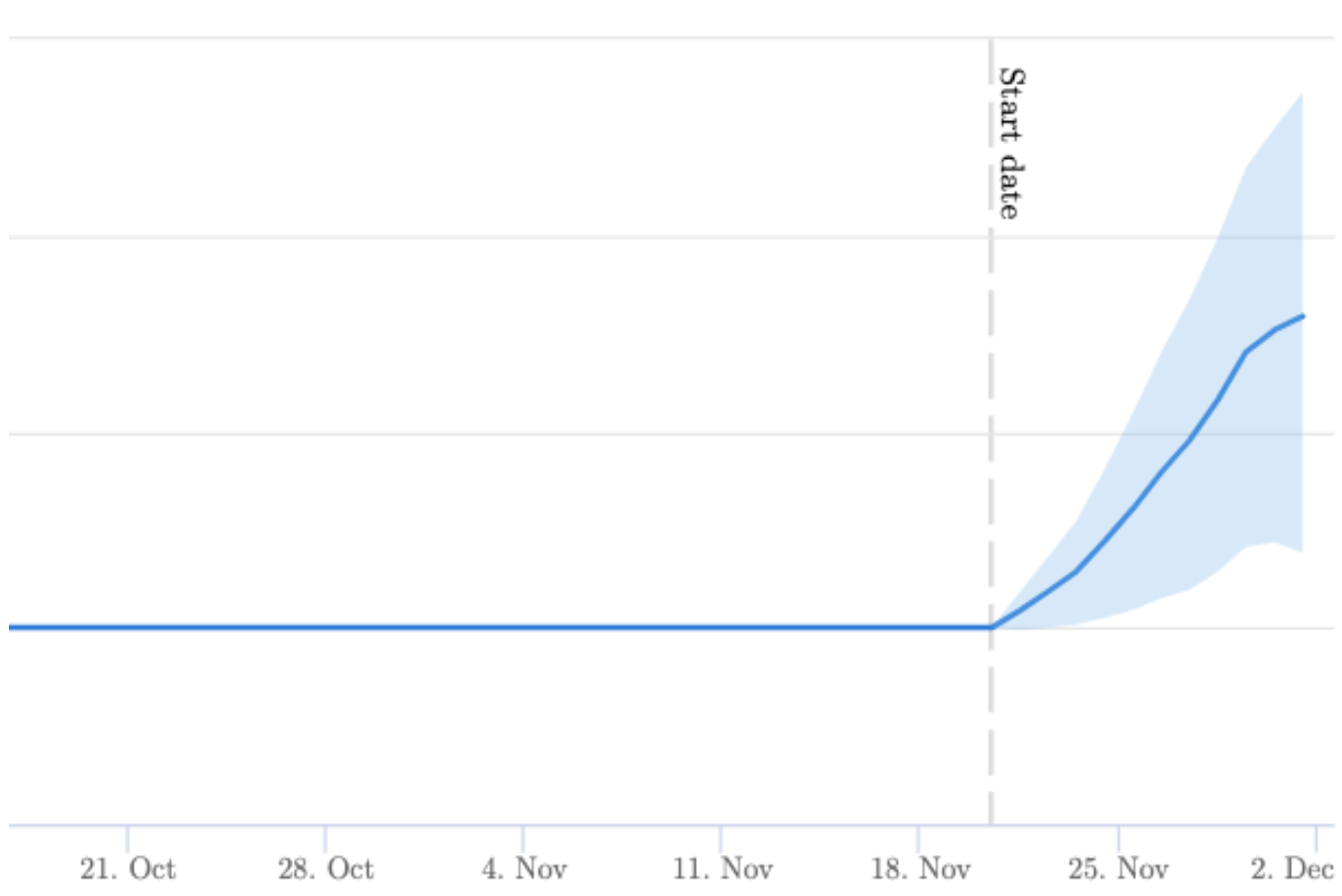
DE Market: +17% uplift
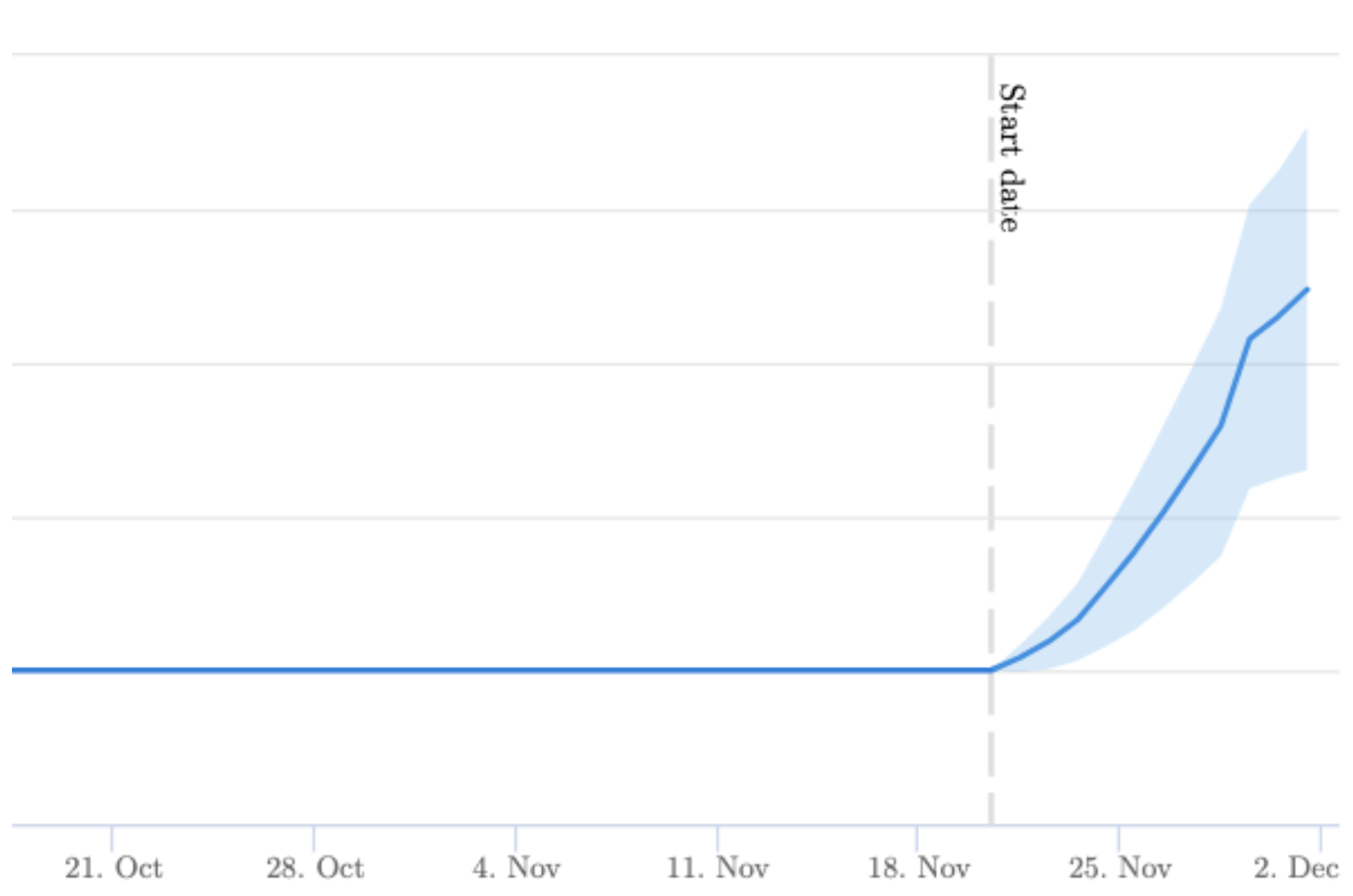
UK Market: +3% uplift
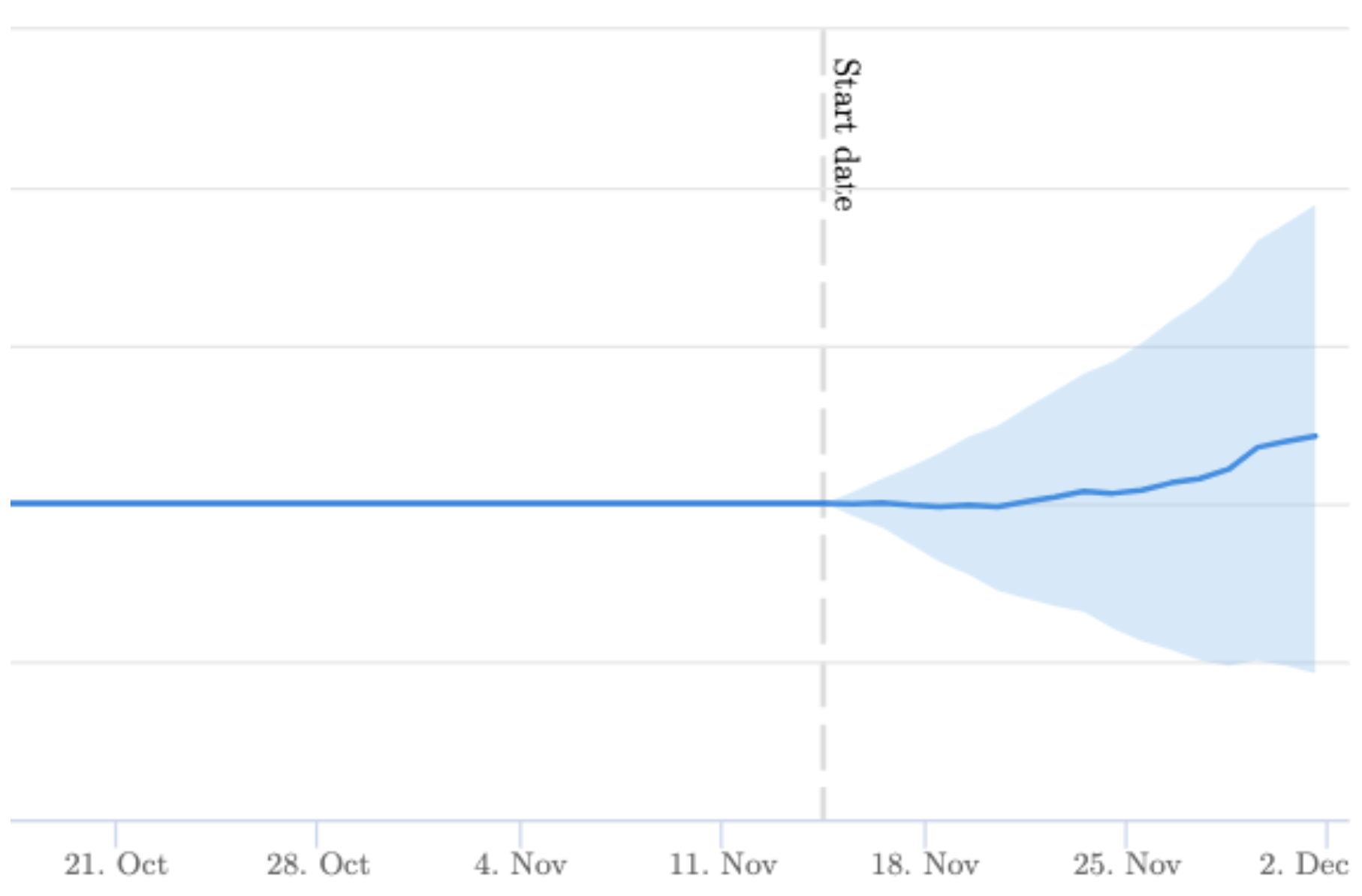
The charts below show the impact of this test on organic sessions for Routes pages:
US Market: -11% loss
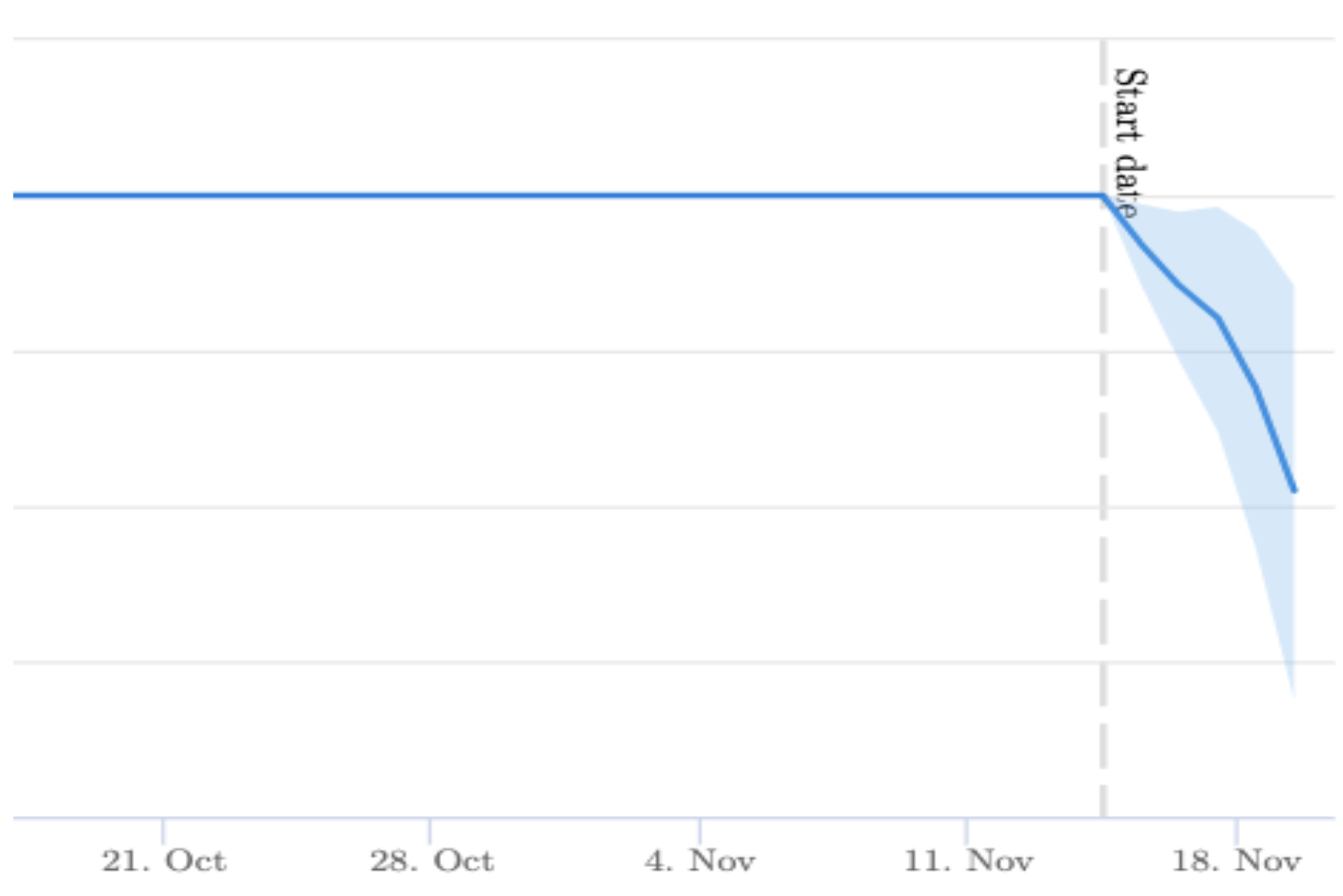
ES Market: -3% loss
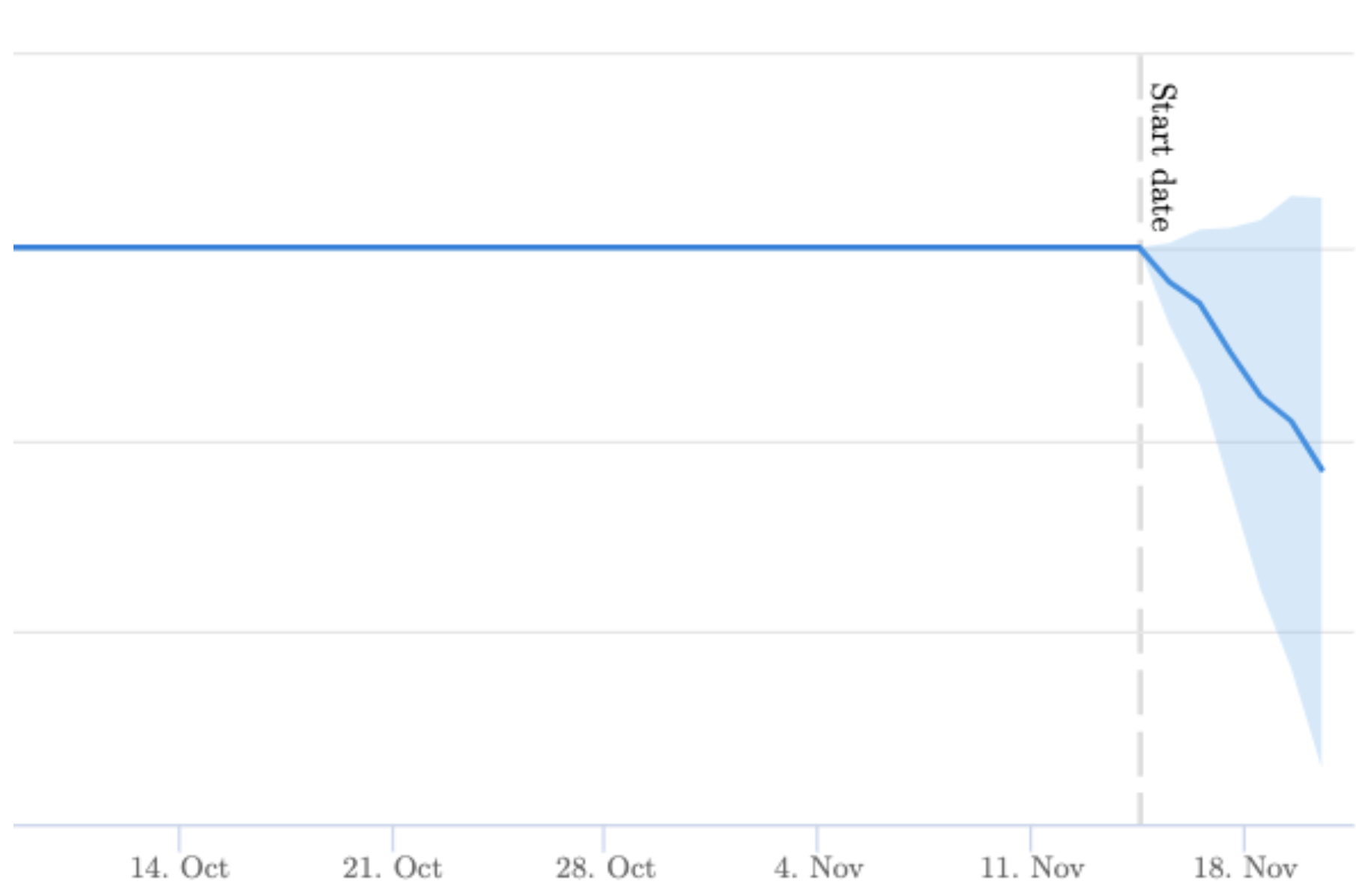
UK Market: -5% loss
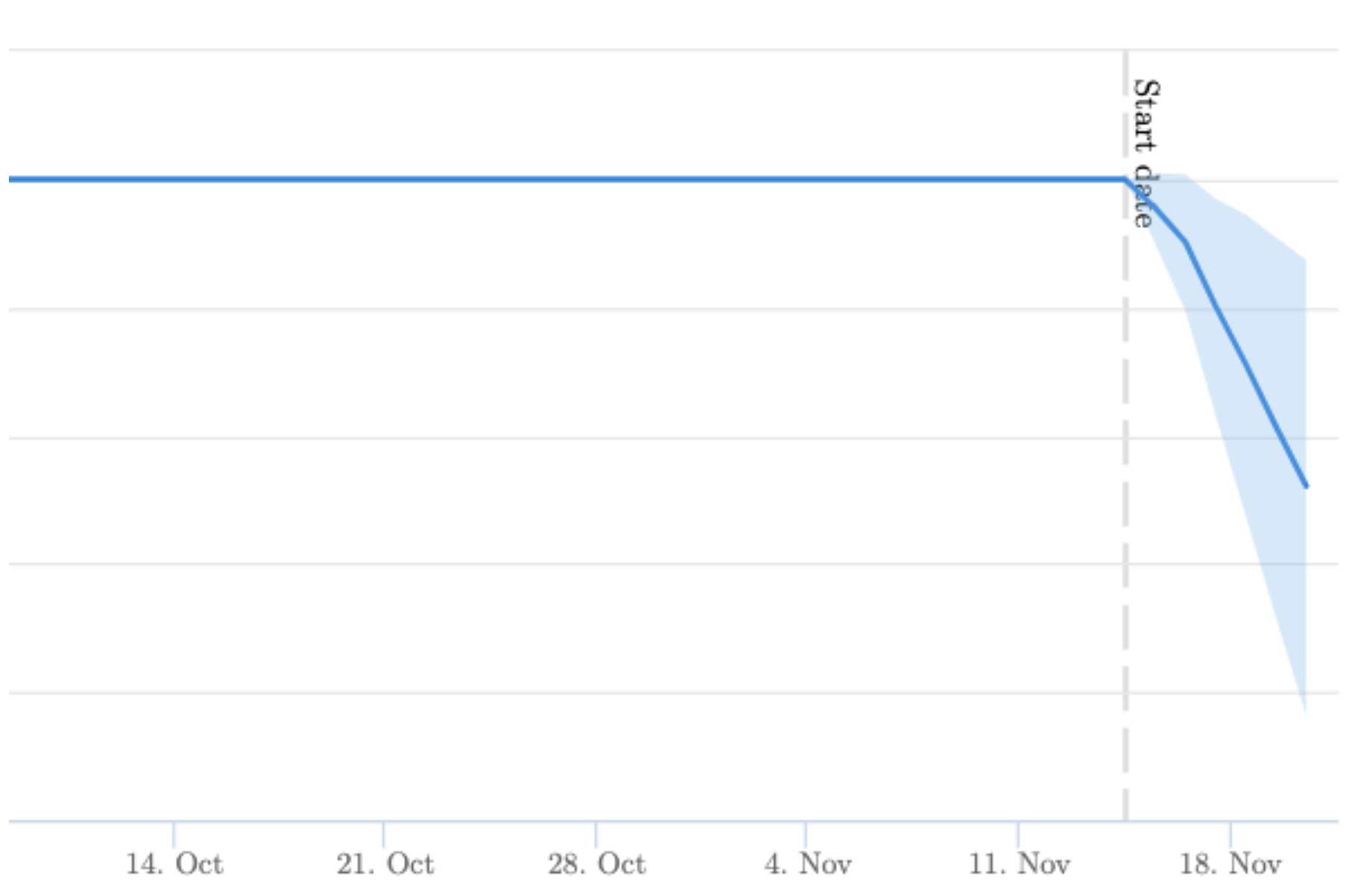
This change yielded completely different results on the Destination and Routes pages; however, adding “Black Friday” to the page titles seemed to perform similarly based on the template. Tests on the Destination pages were either significantly positive or inconclusive, while tests on the Routes pages were negative or negative at a lower confidence.
Despite adding the seasonally-relevant keywords “Black Friday” into the title tag on both page types, it’s possible the negative result on the Routes pages was due to the title truncating in the search results page. On the variant Destination pages, the titles were fully displayed in the search engine results listings. Since Routes titles were longer to begin with, adding the “Black Friday” keywords into the titles more often than not pushed other keywords that searchers might find helpful out of sight. It also meant the keyword “deals” in “Black Friday Deals” was cut out of some page titles, making the offer less clear.
Adding seasonal keywords to title tags is one way to improve visibility and increase relevance in the search results page. Of course, holiday messaging and its relevance to a site’s content should be taken into consideration. Not only will the impact of this kind of change vary among industries, but it can also vary across page templates on the same site, as noted in this particular case study - so if you have the opportunity to test it, we highly recommend it.
To receive more insights from our testing, sign up for our case study mailing list, and please feel free to get in touch if you want to learn more about this test or our split-testing platform more generally
How our SEO split tests work
The most important thing to know is that our case studies are based on controlled experiments with control and variant pages:
- By detecting changes in performance of the variant pages compared to the control, we know that the measured effect was not caused by seasonality, sitewide changes, Google algorithm updates, competitor changes, or any other external impact.
- The statistical analysis compares the actual outcome to a forecast, and comes with a confidence interval so we know how certain we are the effect is real.
- We measure the impact on organic traffic in order to capture changes to rankings and/or changes to clickthrough rate (more here).
Read more about how SEO testing works or get a demo of the SearchPilot platform.
